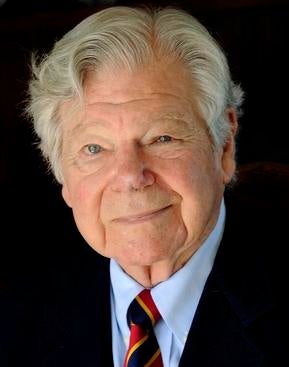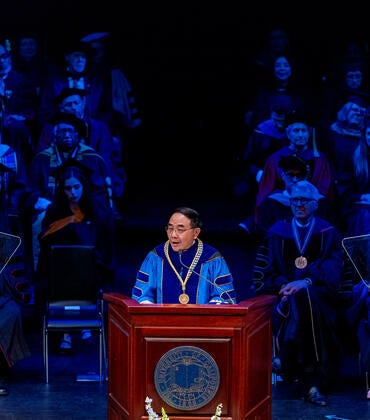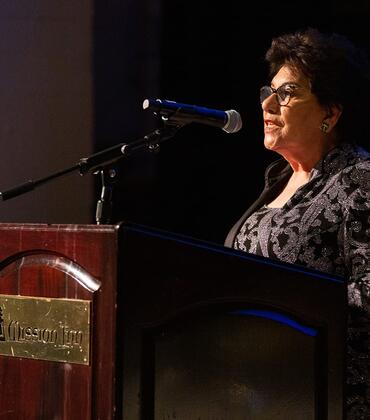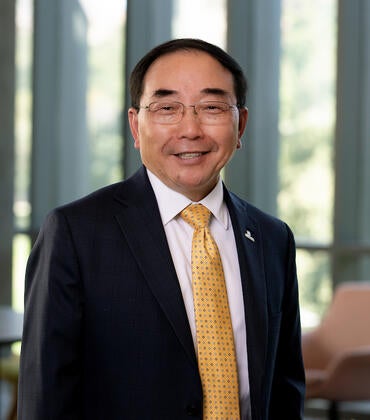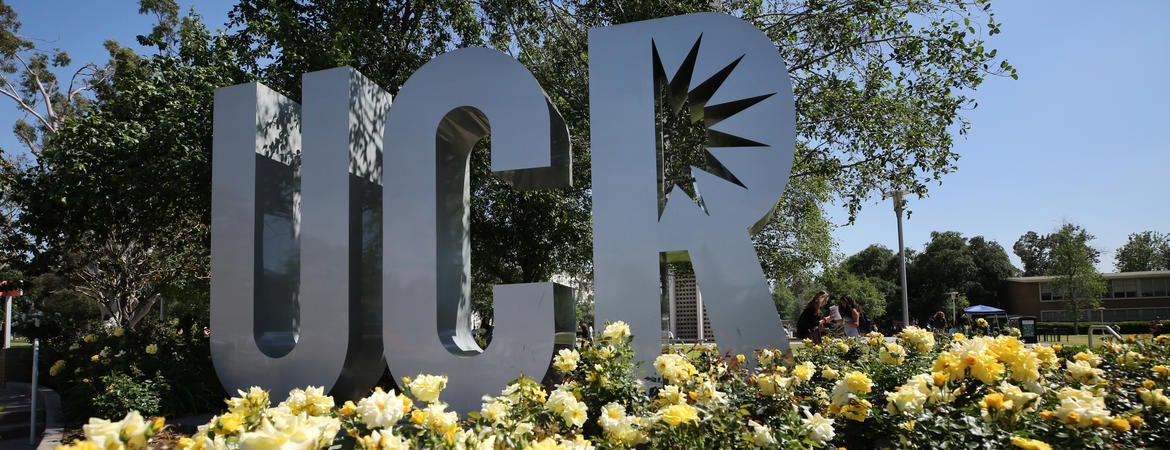
In his youth through the generosity of others, Arthur L. Littleworth received a full scholarship to Yale University leading to a career as a preeminent water law attorney in the United States and an opportunity to encourage other students to excel through UCR scholarships endowed in his name.
Littleworth died Oct. 18. He was 98 years old.
Over the last 30 years, Littleworth kept dozens of thank-you notes from recipients of the Arthur L. Littleworth Endowed Scholarship Fund that reminded him how he helped shape lives of Riverside Unified School District graduates through university scholarships.
During his career, he co-wrote a definitive book about California water (1995, updated 2008), widely viewed as the definitive book on the historical, legal, and policy issues affecting the use of water in California. In 1987, he was appointed as special master by the U.S. Supreme Court to hear a case of original jurisdiction between the states of Kansas and Colorado involving Arkansas River flows. The case was tried in segments, and was completed in March 2009.
The high court adopted Littleworth’s findings on liability—that Colorado violated the Arkansas River interstate compact by excessive well drilling. The court sided with Littleworth on most rulings on damages but calculated prejudgment interest dating back to 1985, when the legal complaint was filed, instead of the special master’s calculation of 1969, when Colorado should have known about the overpumping.
Littleworth graduated with honors and a bachelor’s in history from Yale. He served in the U.S. Navy and saw combat in the Pacific during the final months of World War II. In 1947, he received a master’s in history from Stanford University and in 1950 a law degree from Yale.
Raised in Los Angeles, he moved to Riverside and joined the law firm of Best Best& Krieger. Eventually he became senior partner in the law firm. He participated in all aspects of water law, including transactional and litigation matters.
Education remained a thread throughout his life. He served on the Riverside Unified School District board from 1958 to 1972, the last 10 years as president.
As president, he played a leading role in overseeing the voluntary desegregation of the district’s elementary and middle schools. Later in interviews he emphasized sharing credit with the school board, district employees and community stakeholders to make the integration plan work.
The district was considered the first large school district in the country to voluntarily integrate its student population without a court order. He shared his experiences in the 2014 book, “No Easy Way: Integrating Riverside Schools—A Victory for Community.”
He found time to serve his community, including the university, in many other ways. Littleworth was an early supporter of UCR and served as chairman of the Citizens University Committee from 1957 to 1959, during the university’s establishment as a general campus.
In 2010, Littleworth and his wife, Peggy Littleworth, were the recipients of the university’s Medallion award in recognition of extraordinary service, dedication and generosity to education at all levels and to University philanthropy.
In 1976, Littleworth became the founding president of the Mission Inn Foundation, created by the city of Riverside to take over the bankrupt hotel and revive it to its historical beauty.
Littleworth also served as a member of the task force that examined the Riverside Police Department’s use-of-force rules after the 1998 Tyisha Miller shooting, but not charged with specifically looking at the deadly police shooting. The panel found a “crisis of trust” between the community and police and recommended a rewrite of the use-of-force rules in a commitment to the sanctity of human life and racial and cultural sensitivity.
Other recommendations included citizens’ review of police actions, collection of information about the ethnicity of drivers on traffic stops, increased hiring of minority and women sworn officers and more diversity training. Three years after the shooting, the city created the Community Police Review Commission that still exists today.
In addition to his wife, his survivors include a son, Arthur Todd Littleworth, a daughter, Anne Littleworth Taylor, (stepchildren) and grandchildren.
Story by Gail Wesson
